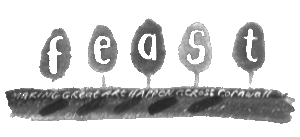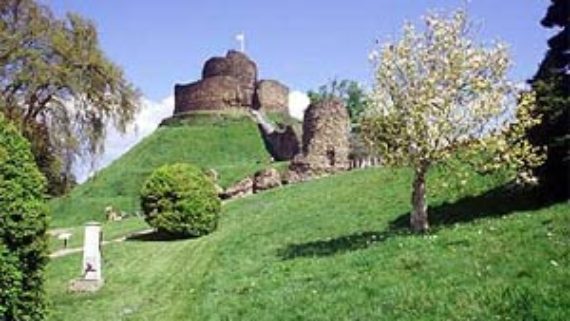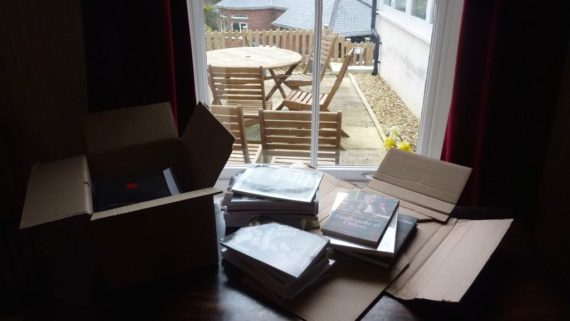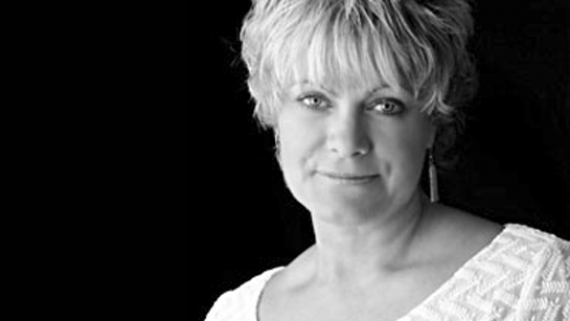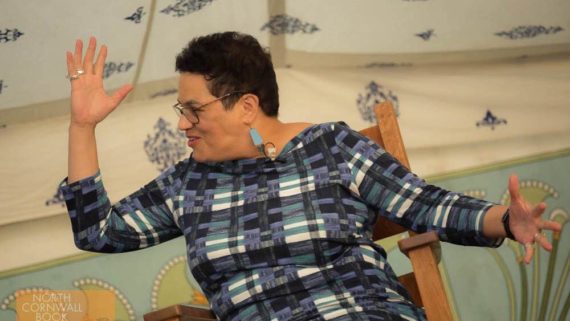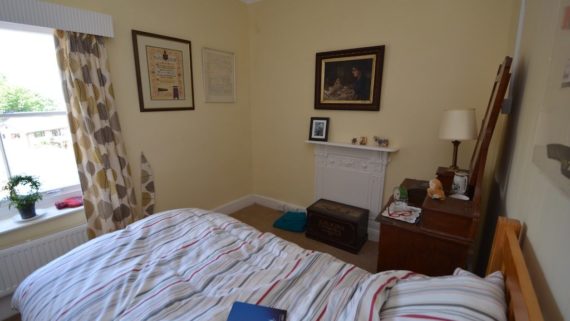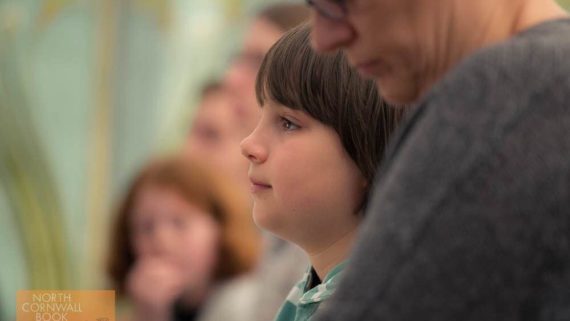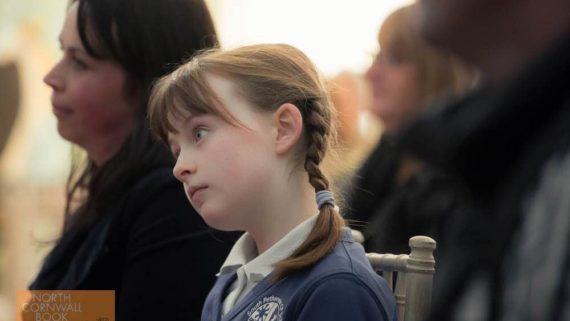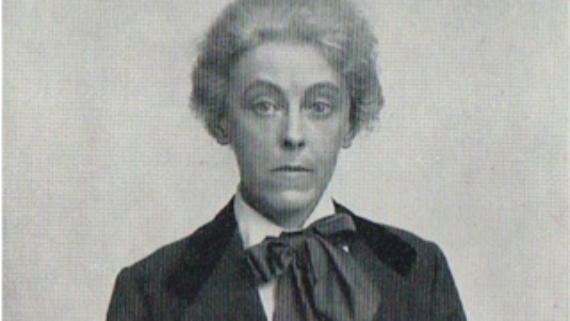Sometimes, sitting in Charles Causley’s study, looking out over the valley, it sounds as though I might be in an aviary. I used to work in one, so I know. The intense noise can be maddening. Here however, it is not. Today, there is a fast, fine drizzle hatching the light and sometimes dense fog which sits in the valley. I’m not used to this quietness, this serenity. I have been living in various dirty noisy cities for years.
Here is Charles’ lovely old dark wood drop leaf desk, the red curtains, and through a large, clear-eyed white window there is a new red brick house at the bottom, and a conifer hedge above it, lining the road which crosses the horizon behind it. All along the slant down the valley are trees. Mornings, the garden table in front of the window has a visit from a robin, several times, and every hour after that a blackbird comes to say something, I’m not sure what.
Here is always warm. The radiator beneath the desk makes writing time cosy time. I never normally sit at a desk to write, but here I can’t resist. I’m quite tall and most chairs are not the suitable height. I hunch. I’ve had a terrible back for the last week. I walk round, comma-shaped, looking for things, or trying to bend, getting a sense of what it must be to be 96.
I have no car and cannot drive. I have resigned myself to not using public transport in Cornwall as it is a disaster, and I am a disaster on it. But Launceston is enough. It is a small town, a grey granite town, with a castle keep that overlooks it as if Norman ghosts somewhere are pacing a battlement, watching us. They must be tired.
I suspect there are many ghosts in Launceston. I don’t believe in them, but they are definitely here. Nowhere more so than this house where I’m staying, Cyprus Well. It is about as comfortable as it could be. Rugs and reading chairs and space.The experience of living here is one of realising how protective Causley was of his space, his pace, his writing time. Every door in the house can be locked or eases shut. I feel he was a man who needed that, particularly when he lived here with his mother. Not because he wanted to shut her out, but because they need to live together separately.
It moves me that he came here to help his mother when she was ill. It troubles me how Causley’s generation had so much to deal with: watching the wounded come back from WWI then having to go themselves in WWII. My generation and later ones cannot even imagine that precise fear. And that his mother married relatively late, and seven years into Charles’ life her husband was dead. She took cleaning jobs, but still managed to make time to bake communion bread.
Was there, perhaps, a sense in Charles he had to do well academically and in life to prove to his mother all the hardship was worth it? He was always making himself useful. Straight out of the Navy after the war, Causley went to train as a primary school teacher. Later, when had he had relative success and his mother was finally ill, he went to visit her in hospital and their shared recollections became the origins of many new poems.
When Causley himself shuffled off he left a lot of his estate to the local churches. This is because of something, I, a townie, had forgotten. In small places, churches are instant communities, whatever your beliefs. He knew that local people did small things to make huge difference to anyone undergoing hardship or who wanted a place to be.
Whatever you think about churches or religion there is no getting around the fact that Causley knew exactly where the heart of his town was and he knew exactly what conditions he needed for things to work. I can’t help but admire that balance, self-knowledge and generosity, and I know I shall be very sad to leave this, his very lovely home.
Charlotte Walker will be poet-in-residence until Christmas 2016.



